Discover Catholic Daily Reflections
Catholic Daily Reflections

Catholic Daily Reflections
Author: My Catholic Life!
Subscribed: 1,617Played: 120,016Subscribe
Share
© Copyright My Catholic Life! Inc.
Description
My Catholic Life! presents the beauty and splendor of our Catholic faith in a down to earth and practical way. These daily audio reflections come from the "Catholic Daily Reflections Series" which is available in online format from our website. They are also available in e eBook or paperback format.
May these reflections assist you on your journey of personal conversion!
May these reflections assist you on your journey of personal conversion!
2354 Episodes
Reverse
Read Online“I baptize with water; but there is one among you whom you do not recognize, the one who is coming after me, whose sandal strap I am not worthy to untie.” This happened in Bethany across the Jordan, where John was baptizing. John 1:26–28Though John the Baptist prepared the people of Israel for the beginning of Jesus’ ministry, he also prepares us to receive the fruit of that ministry and mission. One way he does this is by revealing the identity of the Messiah with great clarity.Of John, Jesus said, “Among those born of women there has been none greater than John the Baptist; yet the least in the kingdom of heaven is greater than he” (Matthew 11:11). This is high praise! One of the most important qualities that made John so great was his humility. It was his humility that enabled him to turn the attention of his followers away from himself and toward the Messiah.During this transitional period between the octave of Christmas and Ordinary Time, we are invited to anticipate all that this newborn King came to do in our lives. He came to set us free from all sin so that we can enter into union with Him. One of the best ways to embrace our Lord’s mission is to understand who He is—His identity and mission.With John, we are invited to acknowledge the unfathomable glory of the Messiah. With John, we must profess that we are not worthy even to untie His sandal strap. In the cultural context, that function was delegated to the lowest servant in a household, who untied the master’s sandals upon his return home and washed his feet. If we understand who Jesus is in relation to us, we will believe and profess that we are not worthy even to be His lowliest servant. This is the truth: in regard to worthiness, we have none in the presence of the Messiah.Once we understand and believe this truth, we will be better prepared to embrace the even more glorious truth that our King, Master, and Messiah has chosen to stoop down to wash our feet and serve us by laying down His life for our eternal salvation. He takes all our sins upon Himself and suffers their consequences, death on a cross.Without imitating and participating in John’s humility, we cannot experience the depth of gratitude that we must have for Jesus’ life and mission. Acknowledging our complete unworthiness with John is not demeaning, nor does it make us any more unworthy. Instead, this act of true humility prepares us for the gift that began with the Incarnation and culminated in the Ascension into Heaven.Reflect today on the humble truth of your complete unworthiness before the life and mission of the Messiah. Ponder John the Baptist as your model. Look at Jesus as John looked at Him, and believe what John believed. As you do, allow that realization to fill you with gratitude as you ponder God’s choice to meet you in that lowly state so as to serve you with the gift of His very life.My glorious Lord, I am not worthy even to be Your lowest servant. Help me to understand and believe this humble truth. As I do, I offer You my utmost gratitude for choosing to meet me in that humility and to draw me to Yourself as my Messiah and King. I love You, my Lord; help me to love You more. Jesus, I trust in You.Image: Boston at English Wikipedia & John Stephen Dwyer, CC BY-SA 3.0, via Wikimedia CommonsSource of content: catholic-daily-reflections.comCopyright © 2026 My Catholic Life! Inc. All rights reserved. Used with permission via RSS feed.
Read OnlineThe shepherds went in haste to Bethlehem and found Mary and Joseph, and the infant lying in the manger. When they saw this, they made known the message that had been told them about this child. All who heard it were amazed by what had been told them by the shepherds. And Mary kept all these things, reflecting on them in her heart. Luke 2:16–19 At the birth of Christ, the Blessed Mother’s Immaculate Heart was full of love and grace, so full that it overflowed in superabundance. Her human heart could not contain all that consumed it. Seeing her Child, having Saint Joseph near, and being accompanied by God’s creatures within that sacred cave near Bethlehem was all that she needed for her complete fulfillment. But God gave her even more.As that holy night unfolded, an angel of the Lord appeared to the poor shepherds tending their flocks in the fields. The angel announced “good news of great joy that will be for all the people” (Luke 2:10). The angel went on to declare, “Today in the city of David a savior has been born for you who is Messiah and Lord. And this will be a sign for you: you will find an infant wrapped in swaddling clothes and lying in a manger” (Luke 2:11–12). Then, a multitude of heavenly hosts appeared, glorifying God with their song of praise.Such an experience compelled these lowly shepherds to immediately seek out this newborn Messiah. When they found Him, they revealed to our Blessed Mother and Saint Joseph what the angel had said to them, and “Mary kept all these things, reflecting on them in her heart” (Luke 2:19). It is this Immaculate Heart and the motherhood of the Blessed Virgin Mary that we celebrate today.Because Mary’s Immaculate Heart was overflowing with love and grace, these humble shepherds gave her the opportunity to share that love and grace. While they blessed her and Saint Joseph by their presence and adoration, she blessed them even more by being an instrument and mediatrix of God’s love through her newborn Son.Mary was not only the mother of the flesh of her Son, but the mother of the Person Who is the Son of God. For this reason, the Church, in Her wisdom, has ascribed to her the title, “Mother of God.” Jesus was her Son, and Jesus is God. Therefore, she is rightly honored as the Mother of God.As the Mother of God, Mary’s Immaculate Heart continues to overflow with love and grace. Just as she did with the shepherds on that first Christmas night, her heart continues to pour forth all that it contains upon us, her spiritual sons and daughters. The extent to which we are members of Christ’s Body, the Church, is the extent to which the Blessed Mother’s motherhood is active in our lives, just as it was in the life of her Son and as it touched the lives of the shepherds. Reflect today on this glorious title given to Jesus’ mother—the Mother of God. As you do, ponder the role she plays in your life and in the life of the entire Church. By giving birth to the Messiah, the Son of God, she gave birth to the Church, becoming mother and mediatrix to us all. Seek her intercession, mediation, and motherhood, knowing that doing so not only honors her Son, but also cooperates with His divine plan of salvation. Most glorious Mother of God, your Immaculate Heart is overflowing with love and the fullness of grace. Your love for all of God’s children compels you to share that grace with all who come to you and your divine Son. Please count me among your children and lavish upon me all that is contained in your pondering heart of pure love and grace. Mother of God, pray for us. Jesus, I trust in You.Image via Adobe StockSource of content: catholic-daily-reflections.comCopyright © 2025 My Catholic Life! Inc. All rights reserved. Used with permission via RSS feed.
Read OnlineIn the beginning was the Word, and the Word was with God, and the Word was God… And the Word became flesh and made his dwelling among us, and we saw his glory, the glory as of the Father’s only-begotten Son, full of grace and truth. John 1:1; 14The Prologue to John’s Gospel, John 1:1-18, is one of the most profound and theologically rich passages in Scripture. It is both contemplative and mysterious, inviting us to come to know God in His essence through the depth of contemplative prayer.The opening words, “In the beginning…,” echo the Book of Genesis, revealing the eternal and preexistent nature of the Son of God. Saint John the Evangelist, through a special grace of infused contemplative knowledge, understood that Jesus was the Word, eternally spoken by the Father, and co-existing with Him for all eternity. He recognized that the Word took on human nature, becoming flesh and dwelling among us.Consider the thoughts of Saint John as he wrote these words for the first time. He had spent about three years with the Eternal Word made flesh—walking with Him, listening to His teachings, and witnessing His miracles, His rejection, His suffering, His death, and His Resurrection. He stood with the others as Jesus ascended into Heaven and experienced the outpouring of the Holy Spirit at Pentecost.After Pentecost, John’s understanding of Jesus deepened. Through prayer and the celebration of the Eucharist, John discovered his Lord in an even more intimate and transformative way. The Eternal Word, though no longer walking the earth, was now present within him by grace. This abiding presence became more real to him than ever before.Like John, we are called to know the Eternal Word as He continues to dwell among us through the Sacraments, in prayer, in the Scriptures, and within our souls. We are invited to be transformed by His presence so that we may become His living members within the Church.This deep union with Christ is only possible when we allow ourselves to be drawn into the mysteries of the Incarnation and redemption. While our minds can grasp these mysteries to a certain extent, true understanding comes through infused contemplative knowledge, a gift of the Holy Spirit dwelling within us.Reflect today on Saint John the Evangelist as he wrote his Prologue. Consider the gift of contemplative understanding he received, the transformation that occurred within his soul, and the intimacy he shared with God. Each of us is called to this same life of interior union and contemplation. Let this beautiful and mysterious Prologue draw you deeper into prayer and into the mystery of the Word made flesh. My Eternal Word of God, You existed before time began, in perfect union with the Father and the Holy Spirit. During this octave of Christmas, we reflect on Your Incarnation, Your becoming flesh to dwell among us and within us by grace. Please reveal to me this great mystery so that I may believe with the same faith as Saint John, Your beloved disciple. Jesus, I trust in You.Image: Milesevac, CC BY-SA 4.0, via Wikimedia CommonsSource of content: catholic-daily-reflections.comCopyright © 2025 My Catholic Life! Inc. All rights reserved. Used with permission via RSS feed.
Read OnlineThere was a prophetess, Anna… She never left the temple, but worshiped night and day with fasting and prayer. And coming forward at that very time, she gave thanks to God and spoke about the child to all who were awaiting the redemption of Jerusalem. Luke 2:36–38Like Simeon, Anna was among those “awaiting the redemption of Jerusalem.” She belonged to the faithful remnant of Israel who believed in the prophecies, understood the Messiah’s spiritual and salvific role, and awaited His coming with great hope.Because Anna “never left the temple, but worshiped night and day with fasting and prayer,” she was deeply attuned to God’s voice. Her life of prayer made her sensitive to the promptings of the Holy Spirit, especially on that glorious day when Jesus was presented and ritually redeemed in the Temple.Imagine Mary and Joseph’s reaction to Simeon’s prophetic words and then to Anna’s. They might have expected the ritual offering and dedication to be a routine event. Yet, the joy and prophetic words of Simeon and Anna must have filled them with awe and wonder at the profound mystery of their Child’s identity and mission.Like Simeon and Anna, we are called to be part of the faithful remnant today. The chaos and immorality that plague our world can easily lead to discouragement or anger. When this turmoil is close to home, within our families or communities, it becomes even more challenging. Anna’s example in today’s Gospel offers us a powerful model of how to live our lives. While most of us cannot remain in church night and day, fasting and praying, we are all called to carry the indwelling of the Holy Spirit within us, making our souls temples of God.Saint Teresa of Ávila speaks highly of the prayer of recollection, a practice that helps us become more aware of God’s presence within. This prayer takes place on two levels. First, “active” recollection is an intentional meditation in which we seek God within the temple, or “castle,” of our souls. It’s an active turning inward to find God dwelling within us by grace.Over time, as we deepen in this prayer, it becomes “passive” recollection. God begins to take the lead, and we sense His presence more profoundly throughout the day, calling us to be with Him in the temple of our souls. Those who practice these forms of recollection are like Anna who spent day and night in the Temple, attuned to God’s voice.Reflect, today, on God’s invitation to imitate Anna’s life of prayer. By following her example, you, too, will become more attuned to the voice of God and the promptings of the Holy Spirit. You will recognize the many ways the Messiah comes to you and is present all around you. This grace will empower you to overcome the evils and challenges of the world, making you a member of God’s faithful remnant, awaiting His consolation and redemption.Most glorious Messiah, You see the chaos in our world, and You come to those who seek You to deliver them and set them free. Help me to become a member of Your faithful remnant, always turning to You in trust and seeking You day and night. Jesus, I trust in You.Image via picrylSource of content: catholic-daily-reflections.comCopyright © 2025 My Catholic Life! Inc. All rights reserved. Used with permission via RSS feed.
Read OnlineWhen the days were completed for their purification according to the law of Moses, the parents of Jesus took him up to Jerusalem to present him to the Lord, just as it is written in the law of the Lord, Every male that opens the womb shall be consecrated to the Lord, and to offer the sacrifice of a pair of turtledoves or two young pigeons, in accordance with the dictate in the law of the Lord. Luke 2:22–24Forty days after a firstborn male was born, the law of Moses required that the mother participate in a purification ritual and that the parents were to “redeem” the child by offering a ritual sacrifice. As faithful Jews, Mary and Joseph took these obligations seriously. When they entered the Temple, they were met by a holy man named Simeon, who was among the faithful Jews “awaiting the consolation of Israel.”From its founding, the Kingdom of Israel had endured many troubled times. The last time the Kingdom of Israel had been united was under the reign of King David and his son Solomon in the tenth century B.C. After Solomon's death, the kingdom split into the Northern Kingdom of Israel and the Southern Kingdom of Judah. The Northern Kingdom was captured by the Assyrians in 722 B.C., and the Southern Kingdom was conquered by the Babylonians in 586 B.C., leading to the destruction of the First Temple and the exile of many Jews to Babylon for about seventy years. In the centuries that followed, Greek culture was imposed upon the region after the conquest of Alexander the Great, and the Romans finally captured Judah in 63 BC, maintaining control beyond the birth of Christ.This history of oppression and division created various responses among the Jewish people. Many prophets had foretold the coming of the Messiah, the one who would bring consolation to Israel. Some Jews expected the Messiah to be a political leader who would reunite and restore the Kingdom. Others were indifferent to the prophecies. But a faithful remnant, like Simeon, awaited the Messiah who would bring about a profound spiritual renewal.Simeon was not a Pharisee, Sadducee, or scribe, but an ordinary devout Jew filled with the Holy Spirit. It was the Holy Spirit Who revealed to him that he would not see death before he had seen the Messiah. On the day Mary and Joseph brought Jesus to the Temple, Simeon, inspired by the Holy Spirit, came to the Temple and recognized the Christ Child. He took Jesus in his arms and rejoiced, saying, “Lord, now let your servant go in peace; your word has been fulfilled…”We should all strive to be like Simeon. Like the people of Israel and Judah, we are living in a world where God’s Kingdom is often divided or overshadowed by immorality, wars, divisions, and a lack of faith. We might be tempted to address these challenges in various ways, but the best way is to become part of the faithful remnant who, like Simeon, trust in God’s promises and eagerly anticipate His transforming action in our lives and in the world. Reflect today on the state of the world. In some places, the Kingdom of God is vibrant and alive; in others, it seems distant or absent. No matter where you find yourself, turn your gaze to the all-powerful Messiah, Who is capable of renewing His Kingdom on Earth as we await its fullness at the end of time. Devote yourself to His mission, and allow the Holy Spirit to inspire you to be an active participant in bringing about the reign of God. My Lord and Messiah, as I see the challenges and divisions in the world around me, help me to trust in Your promises. May I, like Simeon, be filled with faith and hope as I await Your Kingdom. Inspire me to be an instrument of Your grace, helping to build Your Kingdom here on Earth. Jesus, I trust in You.Image: Janmad, CC BY 3.0, via Wikimedia CommonsSource of content: catholic-daily-reflections.comCopyright © 2025 My Catholic Life! Inc. All rights reserved. Used with permission via RSS feed.
Read OnlineWhen the magi had departed, behold, the angel of the Lord appeared to Joseph in a dream and said, “Rise, take the child and his mother, flee to Egypt, and stay there until I tell you. Herod is going to search for the child to destroy him.” Joseph rose and took the child and his mother by night and departed for Egypt. Matthew 2:13–14Today we honor and ponder the family life of Jesus, Mary, and Joseph. The love within their home exceeded that of any other household, and the love within their family poured forth upon their extended family and wider community. Scripture gives us limited details about the life of the Holy Family. What we do know is that from the very beginning, they suffered through enormous challenges.Mary’s pregnancy was the first challenge they faced. She conceived the Christ Child before she and Joseph lived together. Though she knew how she conceived the Son of God, Joseph did not understand until the angel of the Lord appeared to him in a dream. We can imagine that relatives and members of the community expressed their disapproval, given that the angel of the Lord did not reveal the truth to everyone.Jesus was born far away from their home, in the little town of Bethlehem, in a cave, where animals dwelt. Humble shepherds were their first guests, and the magi from the East soon followed. Within a year or two after Jesus’ birth, this family had to uproot from their home and flee to Egypt, find accommodations, and earn a living because Herod sought to kill the child Jesus.After Herod’s death, Joseph was instructed in two subsequent dreams that he could return to Israel and was to move his family to the small and unremarkable village of Nazareth. Though Nazareth was not held in high esteem, it was within this simple setting that Jesus was raised and learned the virtues of hard work, obedience, and humility. Nazareth, though overlooked by the world, became the sacred ground where the Savior of the world was prepared for His mission. Finally, given that Saint Joseph is not mentioned during the time that Jesus exercised His public ministry, it is commonly believed that Jesus and His mother experienced the human sorrow of Joseph’s earthly death.Despite the hardships the Holy Family endured, the love in their home overshadowed every challenge, making their family life a source of the utmost consolation and joy. Amidst the trials they faced, the Holy Family found joy, not in worldly comforts, but in their deep union with God and with each other. Their home was a sanctuary of love, prayer, and mutual support, where God’s presence was always felt. How fascinating it will be one day, in Heaven, if God reveals to us the details about the earthly and hidden life of the Holy Family. Though the angels witnessed their lives as they unfolded in time, we can hope and imagine that God, in His goodness, will share these mysteries with the saints, revealing the true beauty of the Holy Family’s earthly life together. Their conversations, interactions, charity, prayer, fun, work, and all that made up their family life will be a source of eternal admiration and gratitude.Reflect today on the Holy Family. Ask God to give you insight into their lives together. As you do, use any insights as a source of inspiration for your own life and relationships with those closest to you. Though we will all fall short of the charity that permeated the home of the Holy Family, we can work to imitate them by allowing God to increase our charity toward one another. Through daily prayer, acts of sacrifice, and a commitment to love one another, we can create a family life that reflects the holiness and unity of Jesus, Mary, and Joseph. Holy Family of Jesus, Mary, and Joseph, Your family life was holy beyond imagination. In your daily interactions, Your love was manifest and inspiring to each other and to Your relatives and friends. Please draw me into Your family life and teach me to love those in my family so that we will become a stronger community of love. Jesus, I trust in You.Image: Angelica Kauffmann, Public domain, via Wikimedia CommonsSource of content: catholic-daily-reflections.comCopyright © 2025 My Catholic Life! Inc. All rights reserved. Used with permission via RSS feed.
Read OnlineSo Peter and the other disciple went out and came to the tomb. They both ran, but the other disciple ran faster than Peter and arrived at the tomb first; he bent down and saw the burial cloths there, but did not go in. When Simon Peter arrived after him, he went into the tomb and saw the burial cloths there, and the cloth that had covered his head, not with the burial cloths but rolled up in a separate place. Then the other disciple also went in, the one who had arrived at the tomb first, and he saw and believed. John 20:3–8The “other disciple,” the one who “saw and believed,” was John the Apostle whom we honor today. In his Gospel, John often refers to himself as “the one whom Jesus loved.” This title indicates not that Jesus loved John more than the others but that John’s heart was perhaps the most open and receptive to Jesus’ love, allowing our Lord’s charity to fill him more completely.Celebrating the Feast of Saint John within the octave of Jesus’ birth invites us to reflect not only on John but also on the deep and intimate love that he and Jesus shared—a love that serves as an icon of the love Jesus desires to bestow on each of us.Today’s Gospel beautifully highlights three of John’s virtues. First, his all-consuming love for Jesus is evident in his immediate response to Mary Magdalene’s news of the empty tomb. John’s love compelled him to run to the tomb with Peter, showing how deeply he cherished his relationship with the Lord.Second, John’s respectful nature is revealed when he arrives at the tomb first but waits for Peter, the elder and leader among the Apostles, to enter before him. This act of deference speaks volumes about John’s humility and respect for authority.Finally, after entering the tomb, John “saw and believed.” This moment reflects the depth of his faith, a faith that did not require physical proof but was grounded in a profound trust in Jesus. John’s belief was a response to the infused gift of faith, a virtue that allowed him to recognize the truth of the Resurrection even before seeing the risen Lord.John’s example challenges us to examine our own spiritual lives. Is our love for the Lord so strong that it draws us toward Him with the same urgency that led John to run to the tomb? Does our love for God translate into a genuine respect for others? Is our faith so deep that we trust in God’s promises without needing visible proof?As we honor Saint John, reflect today on his identity as “the one whom Jesus loved.” His receptivity to Jesus’ love made him stand out as a model disciple. Seek to imitate John by expanding the capacity of your heart to receive more of God’s love, so that His presence within you becomes evident to others. My loving Lord, Your Sacred Heart overflowed with love for all people. Saint John was especially receptive to that love, enabling him to love You all the more. Please give me a heart like Saint John’s so that I, too, may become Your beloved disciple. Saint John, pray for us. Jesus, I trust in You.Image: St John at the Last Supper by Lawrence OP, license CC BY-NC-ND 2.0. Source of content: catholic-daily-reflections.comCopyright © 2025 My Catholic Life! Inc. All rights reserved. Used with permission via RSS feed.
Read OnlineJesus said to his disciples: “Beware of men, for they will hand you over to courts and scourge you in their synagogues, and you will be led before governors and kings for my sake as a witness before them and the pagans.” Matthew 10:17–18These words capture the essence of the martyrdom of Saint Stephen, the Church’s first martyr, whom we honor today. The day after celebrating the birth of Christ, the Church, in her wisdom, reflects on the reality of persecution as a consequence of worshiping the newborn King.The Jewish community in Jerusalem was diverse, with traditional Hebraic Jews and Hellenistic Jews who were influenced by the Greco-Roman culture. As Jews began to convert to Christianity, a new unified community of believers emerged. Despite this unity, tensions arose, particularly when Hellenistic widows were neglected in the daily distribution of bread. To address this, the Apostles appointed seven deacons, with Stephen being the first, likely a Hellenist himself.Stephen, described as “a man filled with faith and the Holy Spirit,” performed great wonders among the people. When confronted by Hellenistic Jews, he defended the faith with wisdom and courage, leading to his being dragged before the Sanhedrin. His eloquent defense angered his opponents, resulting in his stoning. In his final moments, Stephen commended his spirit to Jesus and prayed for his persecutors.At first, his martyrdom seemed a tragic loss that sparked a wave of persecution and scattered the Christian community throughout the countryside of Judea and Samaria. This dispersion, however, spread the Gospel beyond Jerusalem, leading to many new converts. What appeared to be a tragedy became a catalyst for the growth of the early Church.As we honor Saint Stephen, reflect on the truth that God permits evil only to draw greater good from it. If you face suffering or persecution, let today’s feast inspire hope. Trust in God’s plan, reject fear, and embrace His will, knowing that He can use every cross for His glory. Saint Stephen, you were a man filled with grace and power, deeply committed to Jesus and the proclamation of the Gospel. Please pray for me, that I will have your courage and faith so that God can use me to further His Kingdom by drawing many souls to Him. Saint Stephen, pray for me. Jesus, I trust in You.Image: Giovanni Andrea de Ferrari, CC0, via Wikimedia CommonsSource of content: catholic-daily-reflections.comCopyright © 2025 My Catholic Life! Inc. All rights reserved. Used with permission via RSS feed.
Read OnlineWhile they were there, the time came for her to have her child, and she gave birth to her firstborn son. She wrapped him in swaddling clothes and laid him in a manger, because there was no room for them in the inn. Luke 2:6–7 (Gospel from Mass During the Night)A loving mother and father who experience the birth of their first child receive insight into the sacredness and beauty of this scene. Though great mystery surrounds Jesus’ conception within the womb of the Blessed Virgin Mary, she was truly His mother, and He was truly her Son. Saint Joseph, knowing he was not this Child’s biological father, made a profound act of faith by accepting that fatherly responsibility, as instructed in a dream by an angel of the Lord. Because of his faith and God-given mission, Joseph’s commitment to being the father of the Son of God was one that only a most loving and devoted father would make. As we celebrate Christmas Day, we are reminded of the humility with which our Lord chose to enter the world. Jesus was born in a place where animals dwelt because Mary and Joseph were away from their home to register for the Roman census. At first glance, one might conclude that the physical environment, most likely a cave, was unfortunate. However, we can be certain that this humble and poor setting was part of God’s divine plan, adding to the glory of that night. Christ, in His humility, chose this setting to reveal to us the true greatness of love.The poverty and humility of the cave and the manger—a feeding trough for animals—helped point to the sacredness of Jesus’ birth. No glamor, no fancy or comfortable setting, only love. Pure love. The love in the heart of the Blessed Virgin Mary, the devotion of Saint Joseph, and the Incarnate presence of the Son of God were everything needed to make that night glorious.One lesson we can learn from the Nativity of the Lord is that the beauty, peacefulness, and contentment of our lives are not dependent upon how much money or how many material possessions we have, but rather on the purity of our love. The Holy Family’s hearts were perfectly fulfilled, not because of their surroundings, but because of their intimate union with God in the person of Jesus Christ.The presence of the Son of God in that place of poverty sheds light on the true riches we crave. The true treasures we seek are found not in wealth, comfort, or possessions, but in the love and grace of God. The Holy Family’s witness reveals to us that when we place our hearts in God’s hands, we will be filled with all we need. Reflect today on that most sacred, simple, and humble scene. As you do, try to imagine how humanly fulfilling that experience was for the Holy Family. Jesus was wrapped tightly in swaddling clothing, and He was adored with the greatest affection of His mother and foster father. Mary and Joseph’s hearts contained all that was necessary for profound gratitude and fulfillment. If you struggle with being fulfilled, learn a lesson from the Holy Family and seek to imitate Mary and Joseph so that your love for our Incarnate Lord fills you with all you need. My Incarnate Lord, Your divine nature, united to Your human nature, transformed that humble cave near Bethlehem into a tabernacle filled with the most powerful bonds of pure love. Please draw me into that sacred scene and help me to share in the love in the Immaculate Heart of Your mother, as well as the human devotion of Your foster father, Joseph. May I find contentment and total fulfillment in life by seeing You and loving You in every way that You come to me. Jesus, I trust in You.Image: Gerard van Honthorst, Public domain, via Wikimedia CommonsSource of content: catholic-daily-reflections.comCopyright © 2025 My Catholic Life! Inc. All rights reserved. Used with permission via RSS feed.
Read Online“Blessed be the Lord, the God of Israel; for he has come to his people and set them free. He has raised up for us a mighty Savior, born of the house of his servant David…” Luke 1:68–69These words are the beginning of Zechariah’s song of praise, traditionally called the Benedictus, which he prayed as soon as his mouth was opened at the circumcision of his newborn son, John the Baptist. Priests and religious pray this beautiful song in the Liturgy of the Hours every morning. It recounts the whole plan of salvation that God began with Abraham, outlines the role of the prophets, and points to Zechariah’s son, John, as the “prophet of the Most High” who will “go before the Lord to prepare his way, to give his people knowledge of salvation by the forgiveness of their sins” (Luke 1:76–77).As we prepare for the great Solemnity of Christmas Day, Zechariah’s song gives us much to ponder. He begins by blessing God Who “has come to his people and set them free.” Christmas is not only about the Most High God Who took on the form of an infant long ago. It’s also an ongoing coming to us by grace and the Sacraments. That same Most High God continuously descends into our souls as He is made visible to us in the Sacraments, especially the Eucharist. Therefore, each of us must sing Zechariah’s song with the same vigor and conviction every time we attend Mass or encounter God’s presence in our lives.Why did God come to us? He came to set us free. Christmas must be a time when we acknowledge the ways that our sin oppresses us. We need a Savior. We need freedom. We need forgiveness. The only way to be receptive to our Savior is to humbly acknowledge how much we need Him.We see this in Zechariah’s song when he speaks of the role his son John would play in the whole plan of salvation. John was to give God’s people “knowledge of salvation by the forgiveness of their sins.” Seeing our sins is essential. Our culture tempts us to downplay sin, to see it as normal or even acceptable. Some hold up their sin with great pride. We must avoid being influenced by this tendency and recognize our sin with clarity and honesty.Understanding the kind of God we have greatly helps us to see our sin and our need for a Savior. Zechariah goes on to say, “In the tender compassion of our God the dawn from on high shall break upon us, to shine on those who dwell in darkness and the shadow of death, and to guide our feet into the way of peace.” Our God is not only compassionate, He offers us a “tender compassion.” He did not come to condemn, but to free us from “darkness and the shadow of death” so that we could be led into the “way of peace.” Deep down, we all want this. The only way to receive it is by listening to John the Baptist’s preaching that we must acknowledge our sins and repent.Reflect today on the true meaning of Christmas. God became Man to save us from darkness, sin, and death. He came to set us free from all that binds us, oppresses us, and misguides us. He came to free us from the evil one’s lies and the many ways that those lies have permeated our lives and culture. Join with Zechariah today in his song of praise for the gift of salvation, and strive to pray his prayer with the same faith he had.Blessed are You, Lord my God, for You have come to Your people to set them free. Mighty Savior, as I prepare to celebrate the great Solemnity of Christmas, please help me to see how much I need You in my life. Without You, I am lost and live in darkness and death. Free me, and help me to repent and to receive Your gift of salvation. Jesus, I trust in You.Image: Philippe de Champaigne, Public domain, via Wikimedia CommonsSource of content: catholic-daily-reflections.comCopyright © 2025 My Catholic Life! Inc. All rights reserved. Used with permission via RSS feed.
Read OnlineWhen they came on the eighth day to circumcise the child, they were going to call him Zechariah after his father, but his mother said in reply, “No. He will be called John.” But they answered her, “There is no one among your relatives who has this name.” So they made signs, asking his father what he wished him to be called. He asked for a tablet and wrote, “John is his name,” and all were amazed. Luke 1:59–63At the time of John the Baptist’s birth, it was customary for family, neighbors, and others within the community to gather for a child’s circumcision on the eighth day. According to Genesis 17:1–14, when God appeared to Abraham and established a covenant with him and his descendants, circumcision was instituted as the external sign of this covenant for every male child on the eighth day. Over time, it also became customary to name the child as part of the ceremony.The naming of a child in Jewish tradition was significant. A child’s name connected him to his family and continued the family lineage. It was a way of honoring the family member whose name the child was given. Customarily, the firstborn male was named after his father or another significant relative. That’s why the family and friends who gathered for John’s naming and circumcision were surprised when he was not named Zechariah after his father and even more surprised when he was given the name John, a name that no other relative had.The inclusion of this story in the Gospel narrative indicates that John’s name and its departure from Jewish custom hold special significance. Giving him a name that no other family member had was God’s way of indicating that John’s family, identity, and mission extended beyond his blood relatives. The name John means “God is gracious” or “God has been gracious.” Hence, John’s name points beyond his life to God, the Source of grace. His mission was universal, preparing the way of the Lord for all people. Through John, the gateway of God’s grace and mercy is proclaimed, and Jesus, the source of grace and salvation, enters. As we reflect on John the Baptist and his unique identity, we should also ponder our own identity in Christ. While family is the first and most important community where we come to know God and learn to love, God also calls us to an identity that transcends our biological family. We receive our most important identity through baptism. Just as circumcision was the sign of the Old Covenant, baptism is the sacrament that initiates us into the New Covenant in Christ.Through baptism, we take on a new identity and become members of the one, eternal family of God. All who are in a state of grace are brothers and sisters in Christ, with God as our Father and the Blessed Virgin Mary as our spiritual mother.Reflect today on your identity in Christ. In many cultures, it is customary to receive a new name at baptism, symbolizing this new identity. Ponder the identity given to you through baptism, the identity that defines who you truly are. Embrace this identity with all your heart.My Lord and God, in You and You alone do I find my true identity. Through my baptism, I have entered into Your family of grace and become a child of Your Father in Heaven. Please help me to fully embrace this Christian identity and dignity, always living as the child of God I am called to be. Jesus, I trust in You.Image: Wolfgang Sauber, CC BY-SA 3.0, via Wikimedia CommonsSource of content: catholic-daily-reflections.comCopyright © 2025 My Catholic Life! Inc. All rights reserved. Used with permission via RSS feed.
Read OnlineMary said: “My soul proclaims the greatness of the Lord; my spirit rejoices in God my savior… He has cast down the mighty from their thrones and has lifted up the lowly. He has filled the hungry with good things, and the rich he has sent away empty.” Luke 1:46; 52–53The last two sentences quoted from our Blessed Mother’s song of praise give us much to ponder. She, who is the Mother of God and full of grace, rejoiced that God “cast the mighty down from their thrones” and “the rich he sent away empty.” It’s understandable that she rejoiced in God Who “has lifted up the lowly” and “has filled the hungry with good things,” but the first two statements might give us pause.In this context, when people are “mighty” and “rich,” we must understand this to mean those who act in a self-sufficient way, not recognizing their need for God. This tendency is easy to fall into. It is especially tempting for those who are successful in life. Without a deep prayer life and awareness of God’s activity in our lives, we can easily fall into the trap of thinking that we are in charge of our own destiny. When this happens, the most merciful thing God can do for us is to cast us down from our self-sufficient throne and send us away to experience the emptiness of our worldly riches. The key to happiness in life is not attaining great power or riches.The key is found in humility, by which we recognize our absolute need for and dependence on God. Why? Because as the great Saint Augustine wrote in his book Confessions, “You have formed us for Yourself, and our hearts are restless until they rest in You, oh Lord.”Would you be happier if you were rich or poor? Powerful or powerless? Famous or unknown? These questions cannot be answered because neither riches nor poverty, power nor powerlessness, fame nor obscurity have anything to do with true happiness. Though each person falling into any of these categories can find happiness, the categories themselves do not determine that happiness. True happiness comes by discovering God within one’s spiritual poverty and hunger. When we perceive our souls correctly, we will understand Saint Augustine’s famous quote. We will realize that God alone fulfills us, and that doing His will enables us to become who we were created to be. When that discovery happens, we will hunger and thirst for God, and doing the will of God will become the all-consuming desire of our souls. Our God, in His great mercy and love for us, loves such a humble and hungry soul, lavishing spiritual riches upon it. Reflect today on the intense interior fulfillment our Blessed Mother had. She did not live in a lavish castle with numerous servants. She was not the governor of her town, exercising great temporal power. But she was happy beyond what we can imagine because in her lowliness, humility, and hunger for God, she found perfect satisfaction. As you ponder her happiness, seek her intercession and strive to follow her example, no matter what temporal or worldly situation you find yourself in. Dearest Mother Mary, you rejoiced and proclaimed God’s greatness, not because of any material or passing blessings God gave you but because of the spiritual richness you possessed within your soul. Please pray for me, that I will discover God’s presence in my life as the true source of fulfillment and will hunger for Him with every desire of my soul. Mother Mary, pray for me. Jesus, I trust in You.Image: Magnificat by Lawrence OP, license CC BY-NC-ND 2.0.Source of content: catholic-daily-reflections.comCopyright © 2025 My Catholic Life! Inc. All rights reserved. Used with permission via RSS feed.
Read OnlineSuch was his intention when, behold, the angel of the Lord appeared to him in a dream and said, “Joseph, son of David, do not be afraid to take Mary your wife into your home. For it is through the Holy Spirit that this child has been conceived in her.” Matthew 1:20Joseph knew that the penalty for adultery was death by stoning. His heart must have been deeply conflicted. On one hand, the virtues of his betrothed wife, Mary, were abundantly clear. Mary radiated holiness. Impurity was foreign to her Immaculate Heart. Yet she was pregnant, and Joseph was not the father. What should he do?To protect Mary from public shame, Joseph decided to do what he believed was the most merciful thing—he “decided to divorce her quietly. Such was his intention…” Though little is known about Joseph, this Gospel passage identifies him as “a righteous man.” Many saints, popes, and Church documents highlight his unquestionable sanctity. He was not immaculate and free from sin as was his wife, but God the Father would have chosen a righteous and holy man to be the foster father of the Son of God.Joseph’s actions reveal his deep faith. As he slept, “the angel of the Lord appeared to him in a dream and said, ‘Joseph, son of David, do not be afraid to take Mary your wife into your home. For it is through the Holy Spirit that this child has been conceived in her.’” The angel explained to him that Isaiah prophesied that the Messiah would be born of a virgin (see Isaiah 7:14) and that Joseph was to take Mary and her unborn Son into his home and care for them. When he awoke, he did as the angel commanded.Joseph’s dream was no ordinary dream. The Holy Spirit accompanied the angel and instilled the certitude of faith in Joseph’s mind, empowering his will to obey God’s will. Joseph became the father and guardian of the Savior of the World. On December 8, 1847, Pope Pius IX declared Saint Joseph to be the Universal Patron and Protector of the Catholic Church. Just as he protected the Son of God, so he intercedes for us who are members of Christ’s body, the Church.As our Advent season enters its final week, we are reminded of the role that Jesus’ foster father played not only in the life of the Holy Family, but also about the role Saint Joseph continues to play in the life of the Church and in each one of our lives. His intercessory power from Heaven is great, and we should not hesitate to call upon his prayers, especially when we need protection, struggle with fear, or face some grave challenge.Reflect today on your personal devotion to Saint Joseph. Ponder, especially, his deep faith and obedience to the will of God as was communicated to him in a dream. Strive to imitate that obedience in your own life, never hesitating to undertake the mission God has given you. Turn to Saint Joseph in prayer and know that his powerful intercession will help protect you and win God’s grace in the areas you need it the most. Saint Joseph, you were a holy and righteous man, entrusted with the guardianship of the Mother of God and the Son of God. You fulfilled your role faithfully and continue that role from Heaven, protecting all of God’s children through your intercession. Please pray for me, that I will imitate your obedience and will be protected from all sin so as to fulfill the unique role God has given me. Saint Joseph, pray for me. Jesus, I trust in You.Image: Gerard Seghers, Public domain, via Wikimedia CommonsSource of content: catholic-daily-reflections.comCopyright © 2025 My Catholic Life! Inc. All rights reserved. Used with permission via RSS feed.
Read OnlineIn the sixth month, the angel Gabriel was sent from God to a town of Galilee called Nazareth, to a virgin betrothed to a man named Joseph, of the house of David, and the virgin’s name was Mary. And coming to her, he said, “Hail, full of grace! The Lord is with you.” But she was greatly troubled at what was said and pondered what sort of greeting this might be.” Luke 1:26–29The phrase “full of grace” is a translation of the Greek word kecharitomene. It can be translated more literally as “having been graced” or “you who have been fully graced.” The tense of the word indicates that Mary has been graced by God in a unique and ongoing way, implying that this grace was not a one-time event but something encompassing her entire being and continuing to have effect.What was the Blessed Virgin Mary’s response to this amazing greeting? She pondered the archangel’s greeting with humility and initially responded with silence and in awe. Gabriel, aware of Mary’s humility in her silence, says, “Do not be afraid, Mary, for you have found favor with God…” Gabriel then goes on to tell her she will conceive the Son of God within her womb.Given her immaculate nature and the fullness of grace within her soul, Mary immediately obeyed the archangel’s command and did not give into fear. Yet her “greatly troubled” heart led her to ongoing pondering and contemplation of all that was said to her.As we draw closer to the Solemnity of Christmas, we are invited to share in the Blessed Mother’s contemplation of the mystery of the Incarnation. We can be certain that as Gabriel departed from her, her prayerful pondering did not cease. The ongoing fullness of grace within her soul led her to the deepest contemplation of this divine mystery that was humanly possible. Her mind would have penetrated the words spoken to her and perceived the mystery of the Incarnation taking place within her womb in ways that even she could not explain. With the fullness of grace came the fullness of infused knowledge, which is beyond human articulation.In our lives, we often fail to humbly ponder the profound reality of the Incarnation. We must have a “troubled heart” in the sense of remaining in awe of what God has done for us by taking on our human nature. We must allow Mary’s pondering to become our own so that we enter more deeply into the great mystery we celebrate.As we prepare for the celebration of Christmas, reflect upon Mary’s pondering mind and heart. Though we will never engage in her depth of contemplative prayer, she is our model. We must accept every divine mystery revealed to us with faith and then grapple with each mystery on a deeper level that can only be accomplished by contemplative prayer. Those who attain this depth of prayer are drawn exceptionally close to God Who uses them to continue the effect of the Incarnation by spiritually giving birth to Christ in their lives. Immaculate Mother of God, you were called “full of grace” by the Archangel Gabriel. You humbly listened to all that was spoken to you and accepted it with faith, surrender, and humility. Please pray for me, that I will imitate your pondering Immaculate Heart so that I will be better prepared for the great Solemnity of Christmas Day. Mother Mary, pray for me. Jesus, I trust in You.Image: Fra Angelico, CC BY 2.0, via Wikimedia CommonsSource of content: catholic-daily-reflections.comCopyright © 2025 My Catholic Life! Inc. All rights reserved. Used with permission via RSS feed.
Read OnlineBut the angel said to him, “Do not be afraid, Zechariah, because your prayer has been heard. Your wife Elizabeth will bear you a son, and you shall name him John. And you will have joy and gladness, and many will rejoice at his birth, for he will be great in the sight of the Lord.” Luke 1:13–15Unlike Saint Joseph and the Blessed Virgin Mary, Zechariah doubted the angel of the Lord’s revelation. Our Blessed Mother encountered the Archangel Gabriel at the Annunciation and responded, “Behold, I am the handmaid of the Lord. May it be done to me according to your word” (Luke 1:38). An angel of the Lord appeared to Joseph in a dream, and when Joseph awoke, “he did as the angel of the Lord had commanded him” (Matthew 1:24).Today, we are given a similar scene to ponder. Zechariah and Elizabeth are identified as being “righteous in the eyes of God, observing all the commandments and ordinances of the Lord blamelessly” (Luke 1:6). In other words, Zechariah was a holy man of God. While he was standing at the altar of incense located in the Holy Place, just outside the veil of the Holy of Holies, the Archangel Gabriel appeared to him to announce that his wife had conceived a child in her old age. Gabriel further reveals, “He will be filled with the Holy Spirit even from his mother’s womb, and he will turn many of the children of Israel to the Lord their God” (Luke 1:15–16).Given Zechariah’s personal holiness and the extraordinary revelation he received from Gabriel, he should have believed what Gabriel said without hesitation. When he failed to do so, Gabriel said to him, “I am Gabriel, who stand before God. I was sent to speak to you and to announce to you this good news. But now you will be speechless and unable to talk until the day these things take place, because you did not believe my words…” (Luke 1:19–20).This chastisement was clearly for Zechariah’s benefit. Despite his lack of faith, God wanted him to participate in His divine plan of salvation. The chastisement was not a punishment in a punitive way. It was meant to instill greater faith in him, and it accomplished its purpose.Most of us are more like Zechariah than we are like our Blessed Mother and Saint Joseph. Despite our best intentions and attempts to remain faithful to God’s will, we stumble. When that happens, we must see any consequences as a gift of love from God. Chastisements come in many forms. They are meant to wake us up to a greater obedience to God’s will. Reflect today on any ways that your sins have resulted in consequences. It takes deep humility to admit our sins and take responsibility for their effects. Though it is easy to be angry, to point the finger elsewhere, and to justify our actions, doing so is a rejection of God’s loving chastisement meant for our good. Strive to imitate Zecharaiah by humbly changing when your sin results in consequences so that God can bring good into your life, even from a lack of faith and obedience to His will.Most merciful Lord, You chastise those whom You love so as to redirect them to Your holy will. When I sin, please help me to accept the consequences with humility and as a motivation to turn back to You in fidelity and love. Please make me holy in imitation of Zechariah, Saint Joseph, and our Blessed Mother. Jesus, I trust in You.Image: William Blake, CC0, via Wikimedia CommonsSource of content: catholic-daily-reflections.comCopyright © 2025 My Catholic Life! Inc. All rights reserved. Used with permission via RSS feed.
Read OnlineWhen Joseph awoke, he did as the angel of the Lord had commanded him and took his wife into his home. Matthew 1:24The human person is a fascinating subject of study. Throughout the ages, countless philosophers, theologians, and social scientists have sought to understand the complexities of human nature. Within the Catholic philosophical tradition, Saint Thomas Aquinas stands out as an influential and trustworthy teacher on this topic.Aquinas teaches that while a person sleeps, the external senses are inactive. However, sense images within the imagination can still be active to varying degrees, depending on the depth of sleep, leading to the formation of dreams. Human reason is not entirely inactive during sleep, but it operates in a diminished capacity, which often results in dreams being nonsensical. Because the intellect’s judgment is not fully engaged, the content of dreams is generally neither moral nor immoral.There is, however, another form of dream that transcends the normal and natural type. This is exemplified in Joseph’s dream. In such divinely inspired dreams, like Joseph’s, human reason is fully active—not because of the natural workings of the imagination—but because the dream is a direct result of divine intervention. In Joseph’s case, his reason and intellect were fully engaged, allowing him to comprehend the divine message delivered by the angel. He was presented with a choice, and with his reason fully operative, he freely chose to say “Yes” to God’s communication, thus embracing his role in the divine plan.This “Yes” to the divine plan is clearly illustrated in the passage quoted above. Upon awakening, Joseph “did as the angel of the Lord had commanded him.” His choice was made during his divinely inspired dream, and his will fully acted upon this decision when he awoke.Though divinely inspired dreams like Joseph’s are uncommon, they do happen. We, however, do not need to wait for such a dream to imitate Joseph’s obedience to God’s will. Like Joseph, we have been given divine Truth. For us, that Truth comes primarily through Sacred Scripture and the teachings of the Church. The writings of the saints also help clarify all that God speaks to us.At times, our imaginations can lead us astray, much like in a dream. When we allow irrational thoughts to dictate our actions, we might find ourselves filled with anxiety, worry, and confusion. Imitating Joseph does not mean waiting for a divine dream; rather, it means actively engaging our minds with divine Truth as revealed through the Church and Sacred Scripture. We must then listen to that truth, dismiss irrational thoughts, and use our reason to command our will to act in obedience to God’s will. Reflect, today, on whether you tend to dwell on irrational ideas or whether you turn your intellect to divine Truth as the basis for what you believe and how you act. Just as Joseph trusted in the Truth revealed to him by the angel and acted upon it, we too must place our trust in the Truth and act accordingly.My trustworthy Lord, You have revealed to us all Truth as is given to us through the Sacred Scripture and the teachings of the Church. When my imagination leads me astray into obsessive thinking and worrying, please speak to me and help me to hear Your voice. May every decision I make and action I take be in accord with Your Truth. Jesus, I trust in You.Image: Finoskov, CC BY-SA 4.0, via Wikimedia CommonsSource of content: catholic-daily-reflections.comCopyright © 2025 My Catholic Life! Inc. All rights reserved. Used with permission via RSS feed.
Read OnlineThe book of the genealogy of Jesus Christ, the son of David, the son of Abraham… Thus the total number of generations from Abraham to David is fourteen generations; from David to the Babylonian exile, fourteen generations; from the Babylonian exile to the Messiah, fourteen generations.” Matthew 1:1; 17This lengthy list of Abraham’s and David’s descendents, leading to Jesus, is much more than a listing of names. It’s an illustration of God’s fidelity to His promises. To Abraham, God promised “All the families of the earth will find blessing in you” (Genesis 12:3). To David, God promised “Your house and your kingdom are firm forever before me; your throne shall be firmly established forever” (2 Samuel 7:16).Certain divine qualities are revealed in these passages. Unwavering fidelity, continuity through the ages, and God’s eternal plan to bless all people through the descendants of Abraham and David are among them. These qualities are not only important for Scripture study, enabling scholars to better understand the whole of salvation history, they also are important to each one of our lives today.When God makes a promise, He is faithful to that promise. What promises has God made to you? He has promised the gifts of grace, happiness, holiness, and eternal life to all who become members of His Kingdom. This promise of unwavering fidelity should inspire hope within our hearts, especially when life is difficult. Difficulties can tempt us to despair, anxiety, and fear. Confidence in God’s fidelity will keep us firmly grounded in the certainty of hope that God will never let us down when we remain faithful to Him.In our fast-paced and ever changing world, continuity and consistency are often absent. Many people change their views based on the latest trends. The barrage of constant news, political and moral opinions, and changing economic and social conditions tempt us to change with the latest ideas. God’s ideas, however, never change. These promises should lead us to establish our lives not on the latest opinions or popular culture, but on the rock-solid principles of faith, as revealed by God.We are among those who receive blessings promised to “all the families of the earth” through Abraham. Jesus is that final descendent through Whom every good blessing comes. His mission opens the floodgates of grace to all who turn to Him in their need. Don’t ever doubt that perfect and eternal plan of salvation. Reflect today on God’s perfect fidelity, continuity, and promise of eternal salvation to all who become members of His Kingdom. That Kingdom will remain forever while every other kingdom will pass away. Resolve to remain a full citizen of that Kingdom by being unwaveringly faithful to God’s promises, and you will be blessed now and forever to share in the eternal plan of our saving God. My faithful God, Your eternal Word never changes. Your perfect plan invites me to share in the salvation promised to all who follow You and become members of Your Kingdom. Grant me the gift of perfect fidelity to You so that I am consistently united to You and always remain a member of Your eternal Kingdom on Earth and in Heaven. Jesus, I trust in You. Image: © José Luiz Bernardes RibeiroSource of content: catholic-daily-reflections.comCopyright © 2025 My Catholic Life! Inc. All rights reserved. Used with permission via RSS feed.
Read Online“What is your opinion? A man had two sons. He came to the first and said, ‘Son, go out and work in the vineyard today.’ The son said in reply, ‘I will not,’ but afterwards he changed his mind and went. The man came to the other son and gave the same order. He said in reply, ‘Yes, sir,’ but did not go. Which of the two did his father’s will?” Matthew 21:28–31Jesus addressed this question to the chief priests and elders of the people. As the passage continues, Jesus humbles them by saying, “Amen, I say to you, tax collectors and prostitutes are entering the Kingdom of God before you.” He explains that the chief priests and elders of the people were like the second son. They gave lip service to God’s commands but failed to humbly repent and obey.The fact that “tax collectors and prostitutes” were entering the Kingdom of God should give us great hope. No one is beyond God’s mercy if they humbly listen to Him, repent, and begin to obey. Though neither son’s response is ideal, hopefully we are more like the first son.When we hear God’s Word and understand His continuously deepening call to holiness, we will find it challenging. Often, our first reaction to a deeper revelation of the Gospel is “No!” Our sinful habits are hard to break, and our fallen human nature is difficult to align with God’s will. Don’t be surprised if you find God’s will initially challenging.As God’s voice and His will become clearer, our first response must always be repentance. This should not surprise us. We must learn to build a habit of repentance if we want to grow closer to God and live His will. Initially, we often react to repentance in a negative way, but we shouldn’t. Though we might be like the first son and say “no” when God calls us to obedience, if we build a habit of repentance, then we will eventually find great joy in that act. Over time, we will find that our response becomes “Yes, I will go,” and then we go, having discovered the value in obedience.Reflect today on whether you often pay lip service to God, pretending to do His will, or if you regularly experience God’s call to repentance on a deepening level. Identify yourself with the repentant tax collectors and prostitutes, and imitate their humility when they were confronted with their sins. Know that repentance is the beginning of freedom and is the first step toward greater unity with God. My demanding Lord, every command You issue is a command of love. Though obedience to You is often initially challenging, help me to see the great value in it. Give me the courage and fidelity I need to hear Your voice, repent of my sin, and obey You in all things. Jesus, I trust in You.Image: Andrei Mironov, CC BY-SA 4.0, via Wikimedia CommonsSource of content: catholic-daily-reflections.comCopyright © 2025 My Catholic Life! Inc. All rights reserved. Used with permission via RSS feed.
Read OnlineWhen Jesus had come into the temple area, the chief priests and the elders of the people approached him as he was teaching and said, “By what authority are you doing these things? And who gave you this authority?” Matthew 21:25–27The chief priests and the elders of the people were supposed to shepherd the people into eternal salvation. They were supposed to be instruments of God’s divine will, prophetic voices, and priests who offered holy sacrifices for the atonement of sin. In practice, they were none of those things.As this Gospel passage progresses, we see more clearly why Jesus rebuked them so firmly. “Jesus said to them in reply, ‘I shall ask you one question, and if you answer it for me, then I shall tell you by what authority I do these things. Where was John’s baptism from? Was it of heavenly or of human origin?’” (Matthew 21:24–25). The religious leaders refused to answer the question because neither answer suited their agenda. If they said John’s baptism was of heavenly origin, they feared that Jesus would ask them why they didn’t believe John. If they said of earthly origin, they feared the crowd who believed John to be a prophet. So they took the easy way out and said, “We do not know.” As a result, Jesus did not answer their question.Jesus’ response to these religious leaders gives us insight into how to respond to those in our lives who directly challenge our faith. At times, we might encounter criticism that is irrational. We might be tempted to get angry and engage that irrational criticism. This often leads to an unproductive conversation.Our Lord’s approach to irrationality in this passage was quite different. Though Jesus judged these religious leaders as God, His human interaction with them was not judgmental or defensive. Instead, He asked a question that forced them to face their irrationality, bringing it into the light. When they refused to admit their irrationality, Jesus remained silent.One thing this tells us is that it is rarely beneficial to engage a person on the level of their irrationality. Silently forgiving their judgment does not mean we need to engage them in it. If someone confronts us with humility and sincerity, this opens the door to a healthy conversation. If their questioning of our actions is irrational, it’s often best ignored. This approach is loving because it imitates our Lord and diffuses the irrational criticism, opening the door to a more healthy conversation later.Reflect today on whether Jesus’ experience with the irrational religious leaders of His time is something you experience with those in your life. Though some people are blessed to be surrounded by very supportive and faith-filled family and friends, others are not. Ponder the ways God wants you to live your faith openly, even if it draws criticism. When it does, try to imitate the humility and wisdom Jesus manifested so that you are not drawn into unhealthy and irrational conversations.Lord of true Wisdom, You always knew how to interact with people with perfect charity and truth. To those who needed Your compassion, You were compassionate. To those who were irrational, You humbly revealed their irrationality. Please give me the gift of wisdom so that I will always relate to those in my life in accord with Your holy will. Jesus, I trust in You.Image via Adobe Stock Source of content: catholic-daily-reflections.comCopyright © 2025 My Catholic Life! Inc. All rights reserved. Used with permission via RSS feed.
Read Online“Go and tell John what you hear and see: the blind regain their sight, the lame walk, lepers are cleansed, the deaf hear, the dead are raised, and the poor have the good news proclaimed to them. And blessed is the one who takes no offense at me.” Matthew 11:4–6Suppose a priest came to your church to put on a parish mission, and during that mission he miraculously healed the blind, crippled, terminally ill, and deaf. What if he even raised the dead to life? How would you respond? Most likely with amazement! You’d contact everyone close to you and tell them about those miracles, encouraging them to attend the next session.Though Jesus’ ministry was filled with miracles, they were far from the most important part of His mission. His miracles healed bodies that would eventually die, but His preaching healed souls that would live forever because His preaching ultimately pointed to His greatest work—to suffer and die for the salvation of souls.If you were alive as Jesus walked the earth, performed miracles, preached the Good News, suffered death, and rose again, which of His actions would have had the greatest effect on you? When we consider our Lord’s mission, we must consider it all as one unified whole, not missing the most important aspects. From a faith perspective, Jesus’ suffering, death, and Resurrection are clearly His greatest acts. By freely embracing suffering and death, He transformed the worst into the best: the consequence of sin—which is death—into the instrument of eternal life. When Jesus said, “And blessed is the one who takes no offense at me,” He was identifying those as blessed who discovered the great value of His Cross.If we were to ask Jesus’ first followers whether they would prefer to see Jesus perform miracles or suffer and die, most likely they would prefer the miracles. Such a question might have even left them confused. Why would anyone want to see a great prophet suffer and die? Yet, today, from a theological perspective, it is clear that Jesus’ suffering, death, and Resurrection are the greatest acts in human history.Imagine being our Blessed Mother who witnessed it all, stood by her Son as He endured His Cross, and rejoiced with Him when He rose. Unquestionably, if we asked our Blessed Mother whether she preferred to see a few miracles from her Son or to witness His perfect sacrifice that brought salvation to the world, her holy and sorrowful heart would choose the latter. Reflect today on these questions within the context of your own life. When you pray, do you primarily ask for favors, blessings, or miracles? Or do you primarily pray for the Cross? Do you see greater value in having God remove some suffering from your life or in transforming your suffering by the power of His Cross? Ask for the grace to die with our Lord, to become a living sacrifice of love, and to have the strength to lay down your life for others. By choosing that which has eternal value, you choose the better part and will rejoice in that better part forever. My sacrificial Lord, You invite me to take no offense at Your suffering and death; to see beyond the pain, blood, and physical death; and to discover the unfathomable riches of Your Sacrifice. Please give me the eyes of faith to see the value of not only accepting Your Cross, but also to see the value of living Your Passion in my own life by laying down my life with You. Jesus, I trust in You.Image via Adobe StockSource of content: catholic-daily-reflections.comCopyright © 2025 My Catholic Life! Inc. All rights reserved. Used with permission via RSS feed.




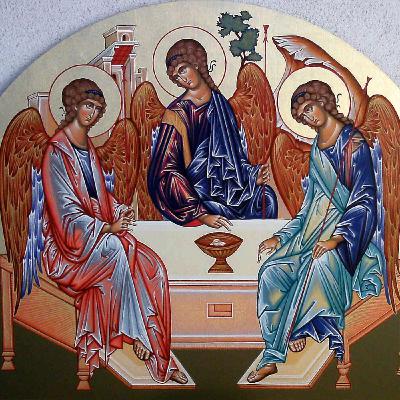
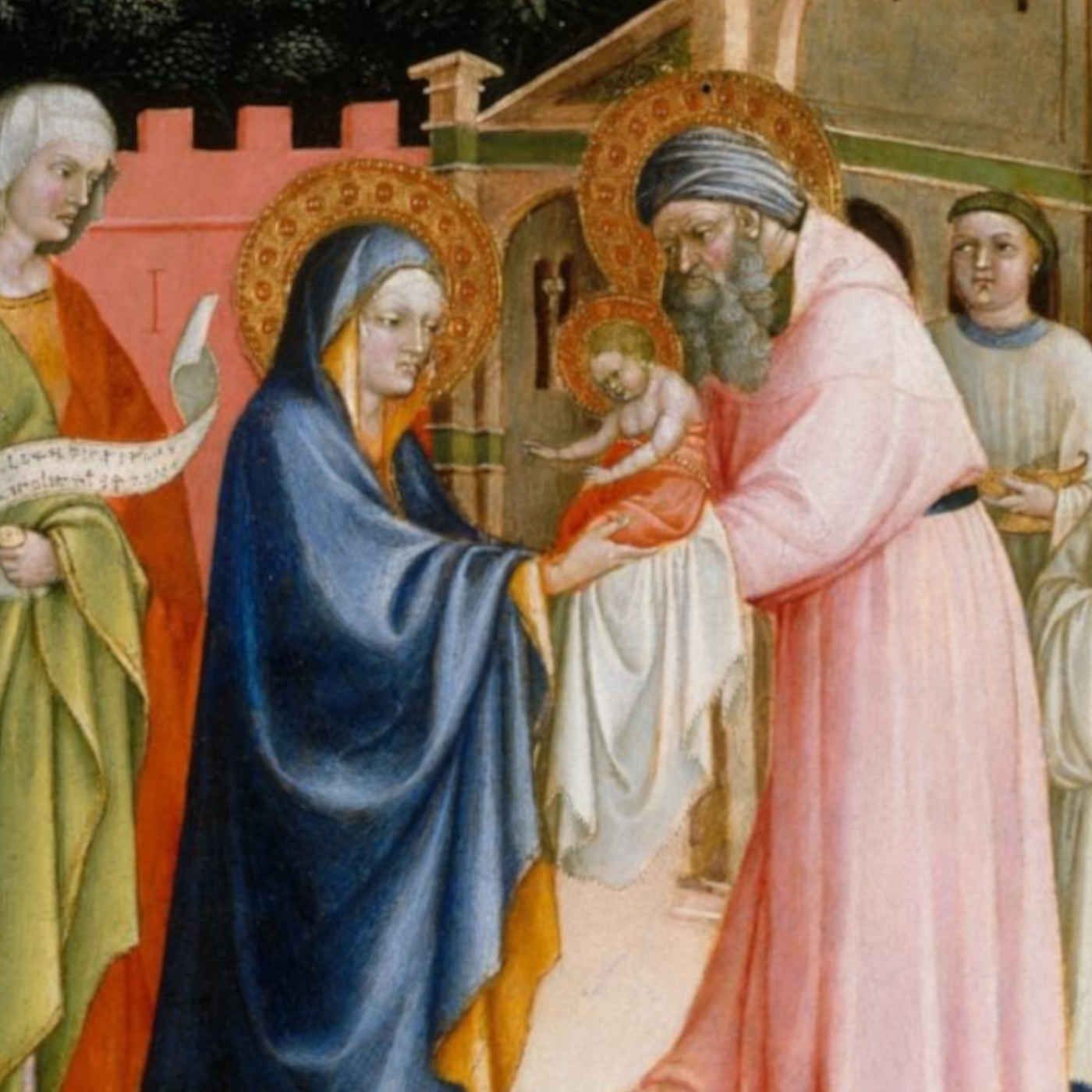
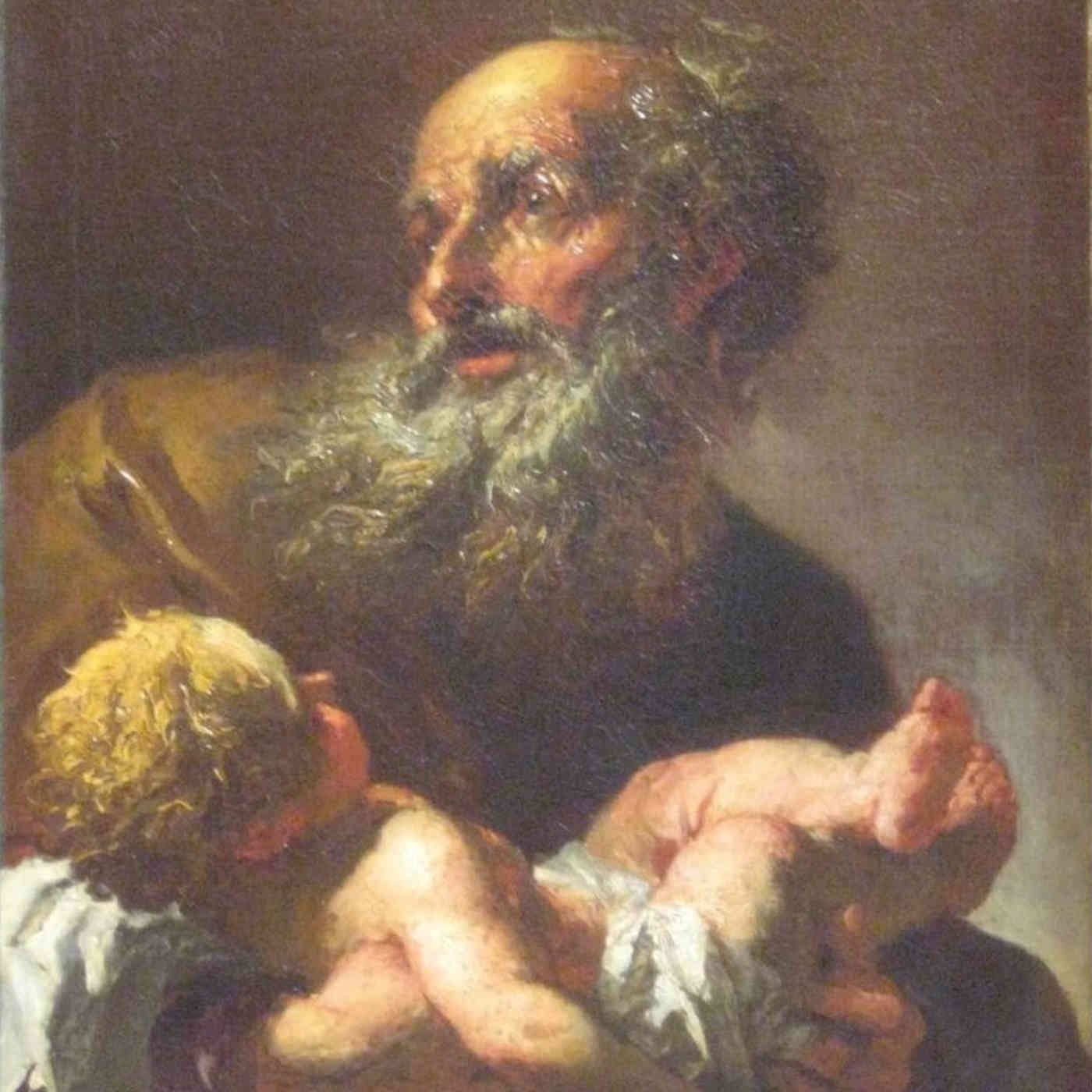

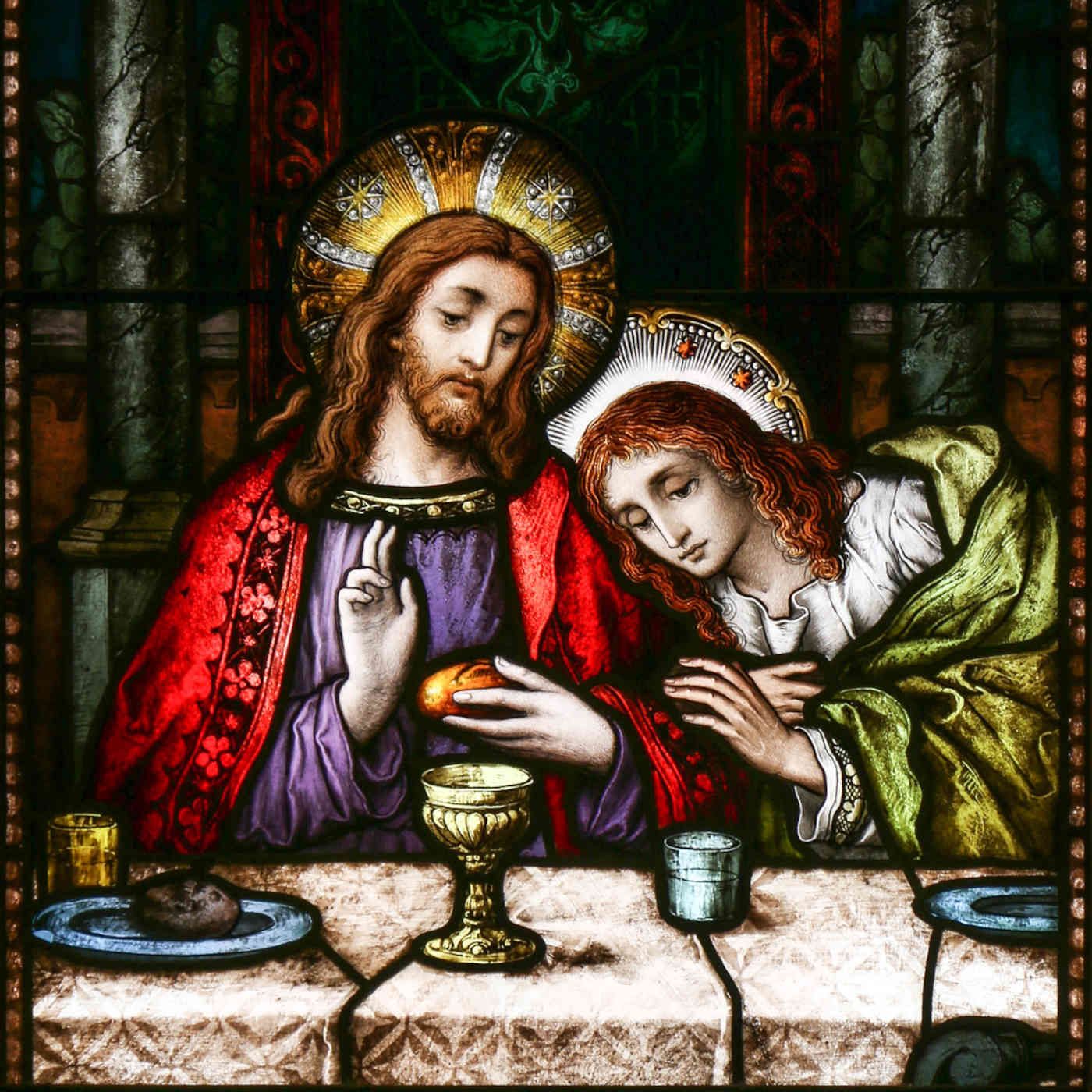
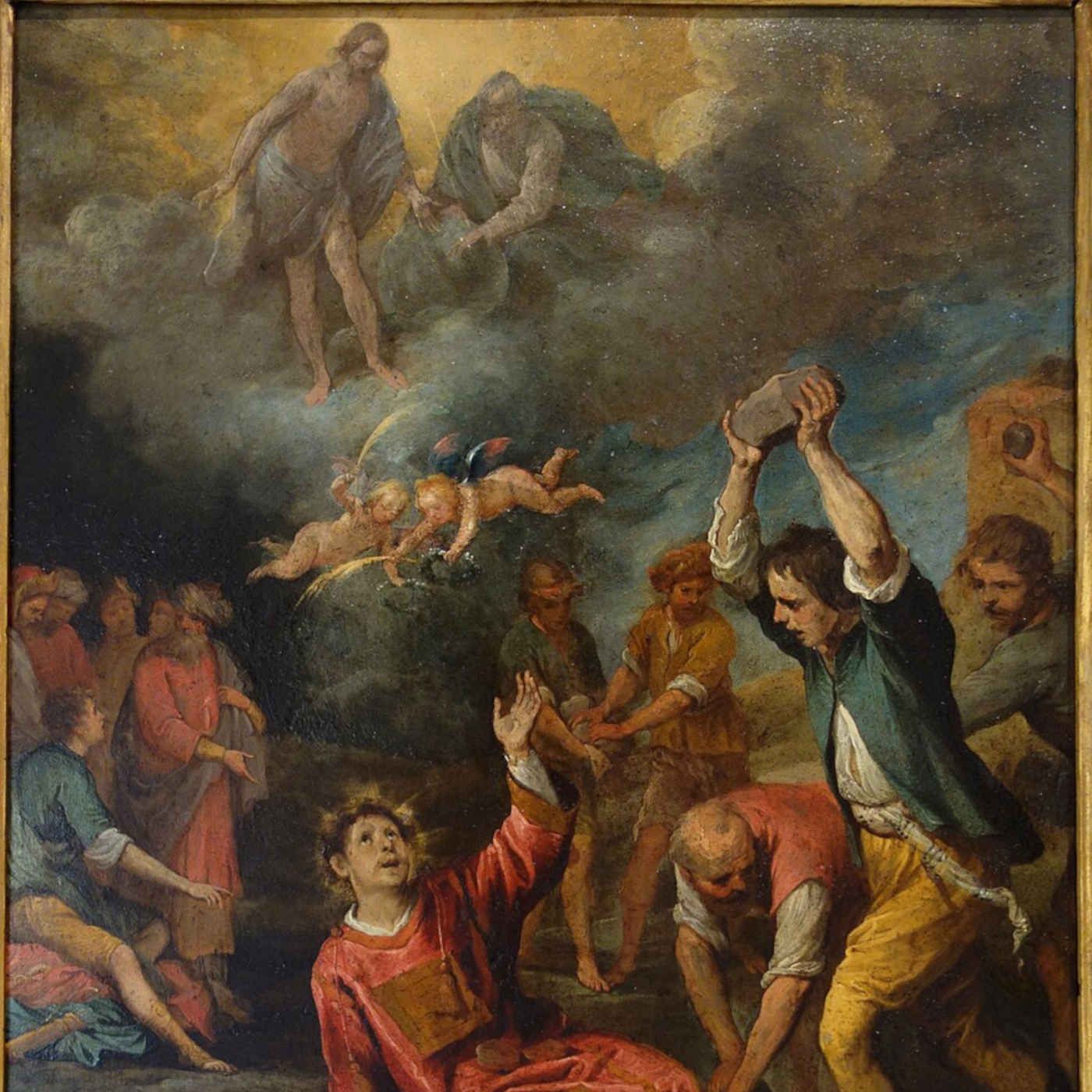
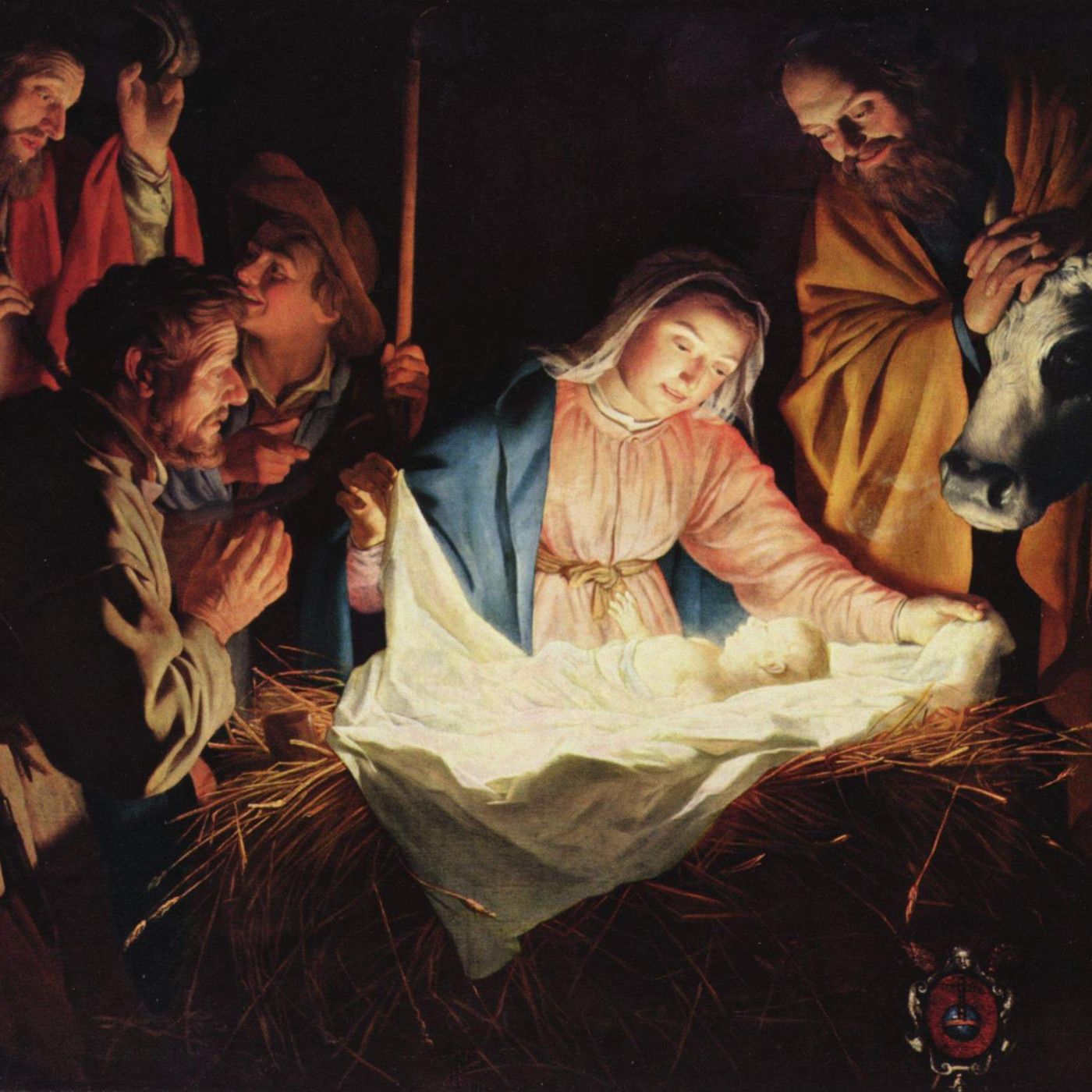
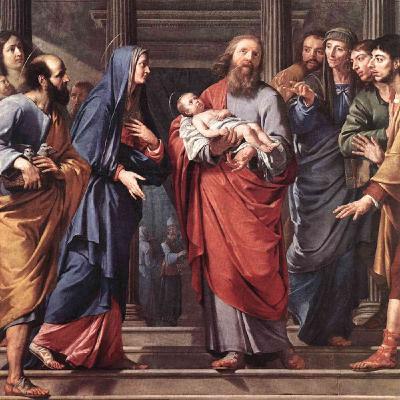
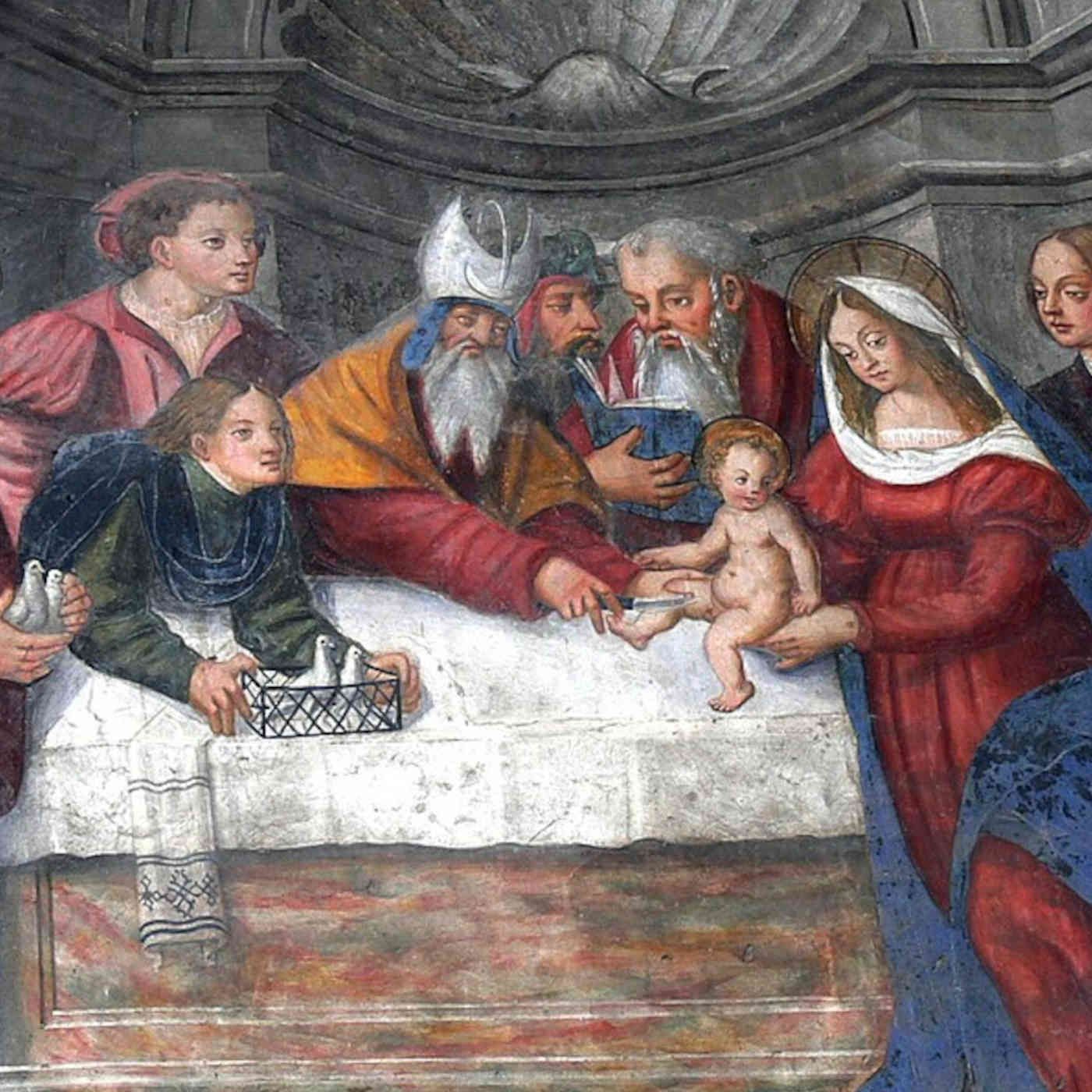


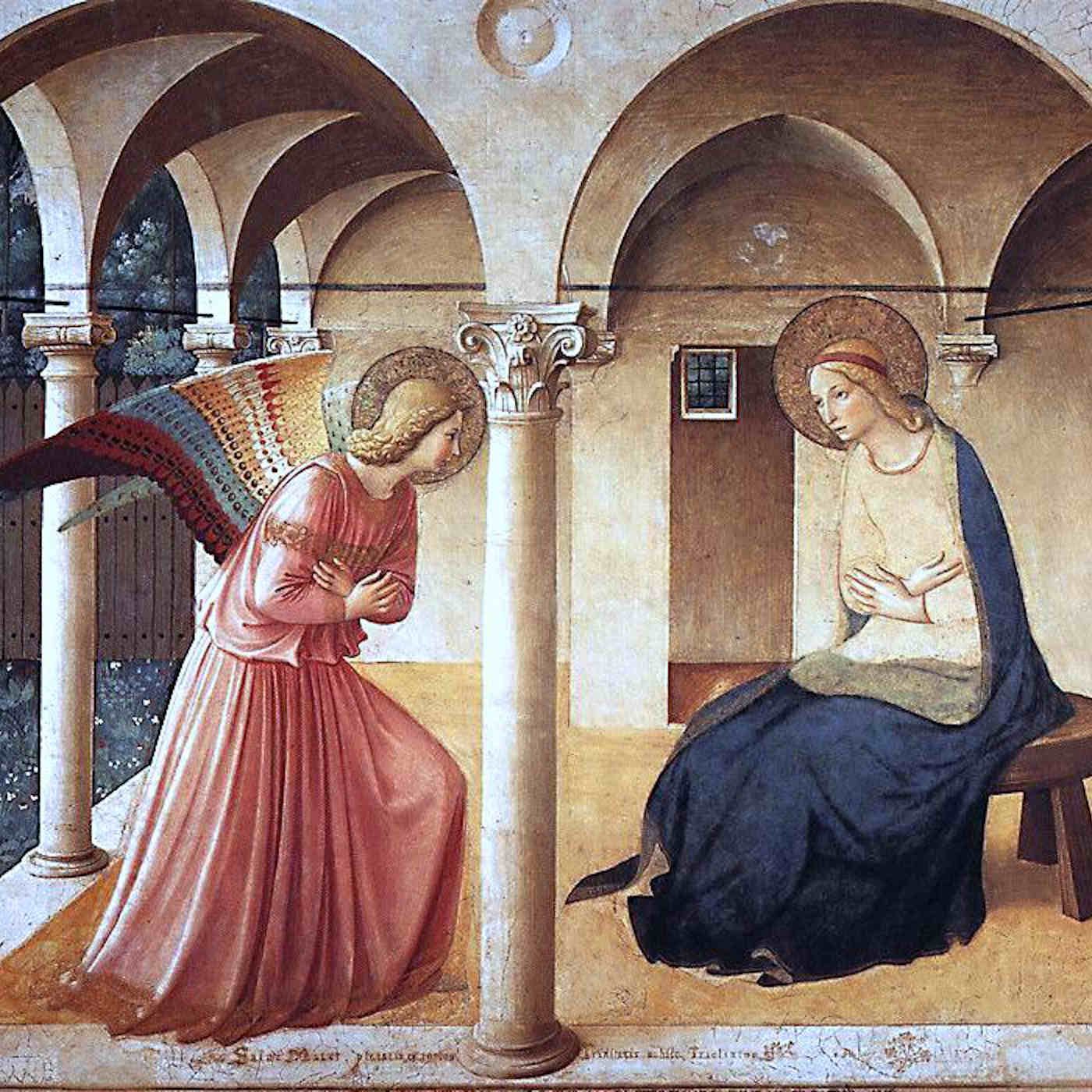
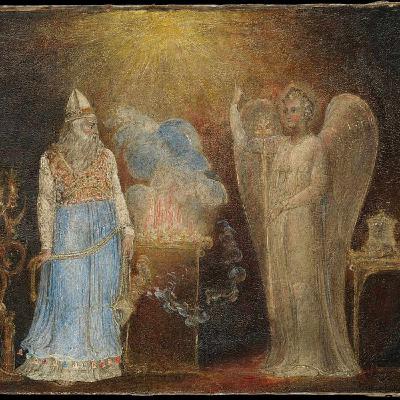

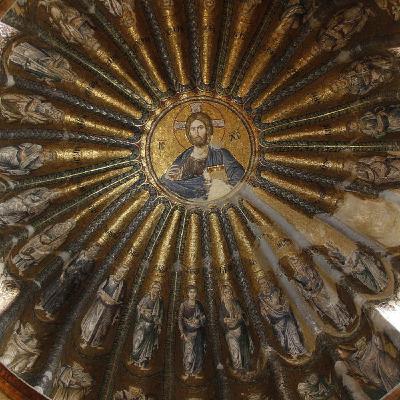
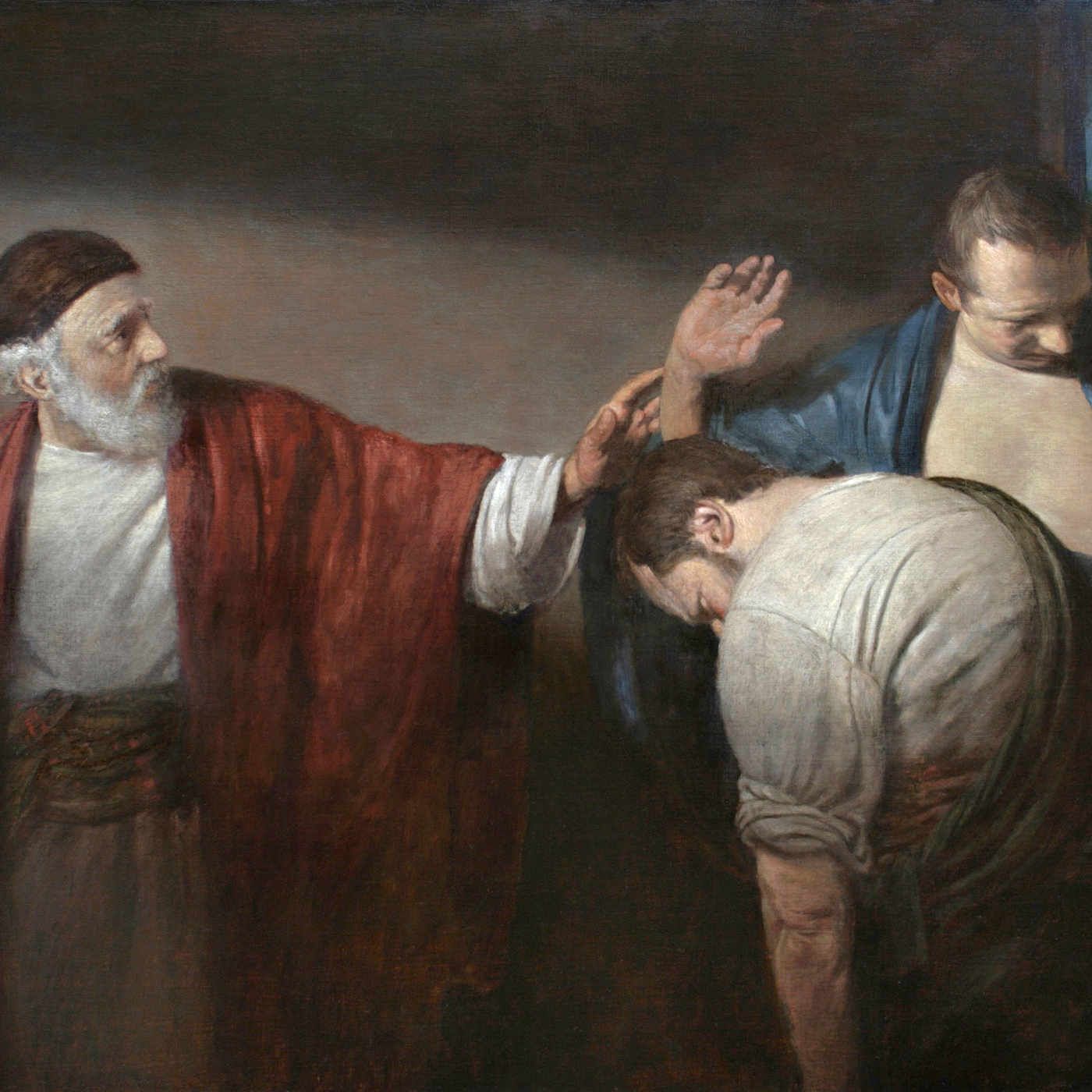
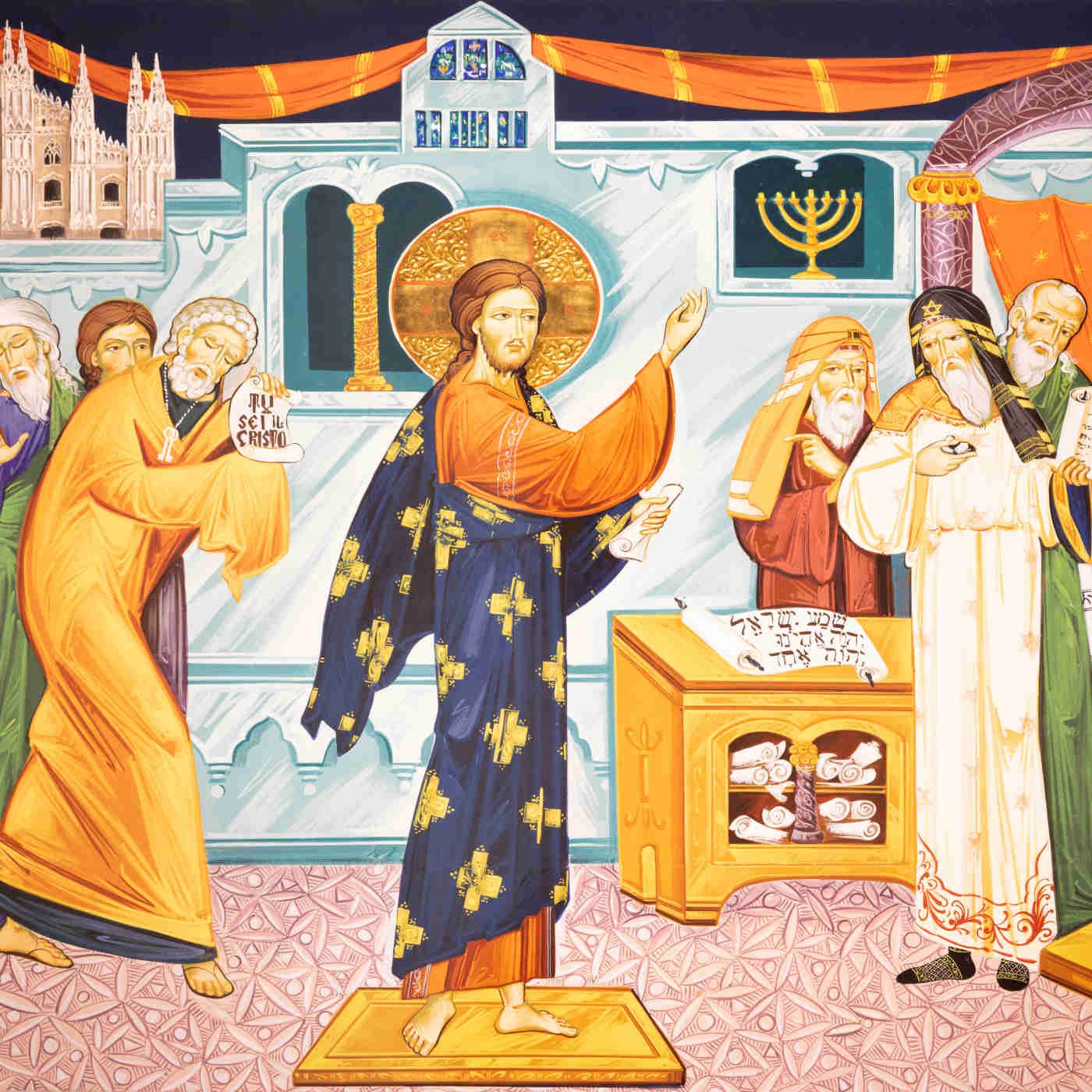
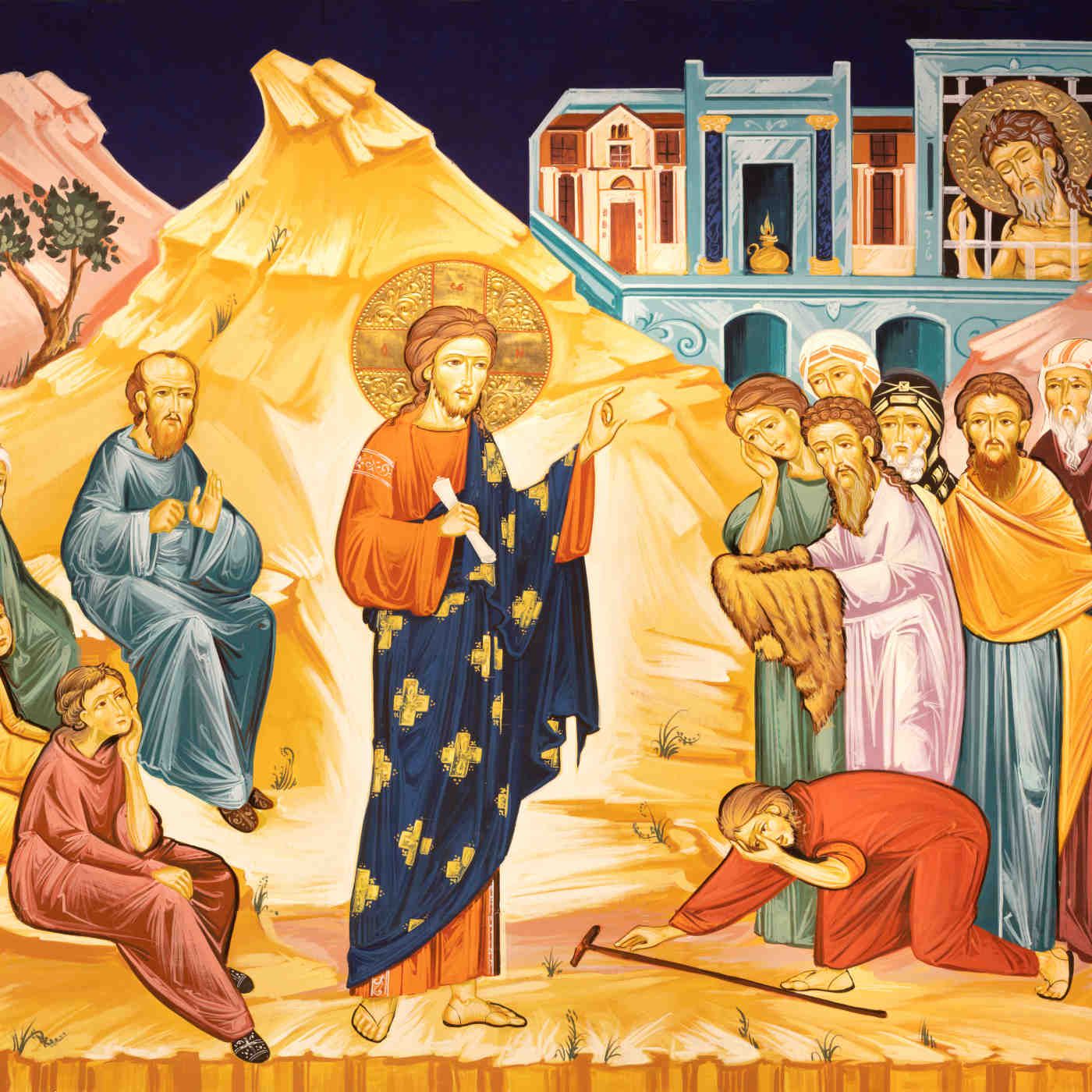



Thank you for sharing with us these daily reflections.
amen 🙏 Thank you for your posting these daily. I appreciate your time and dedication. I learn something new each and every day. God Bless
Amen!
Cleanse me oooh Lord with your Humility.